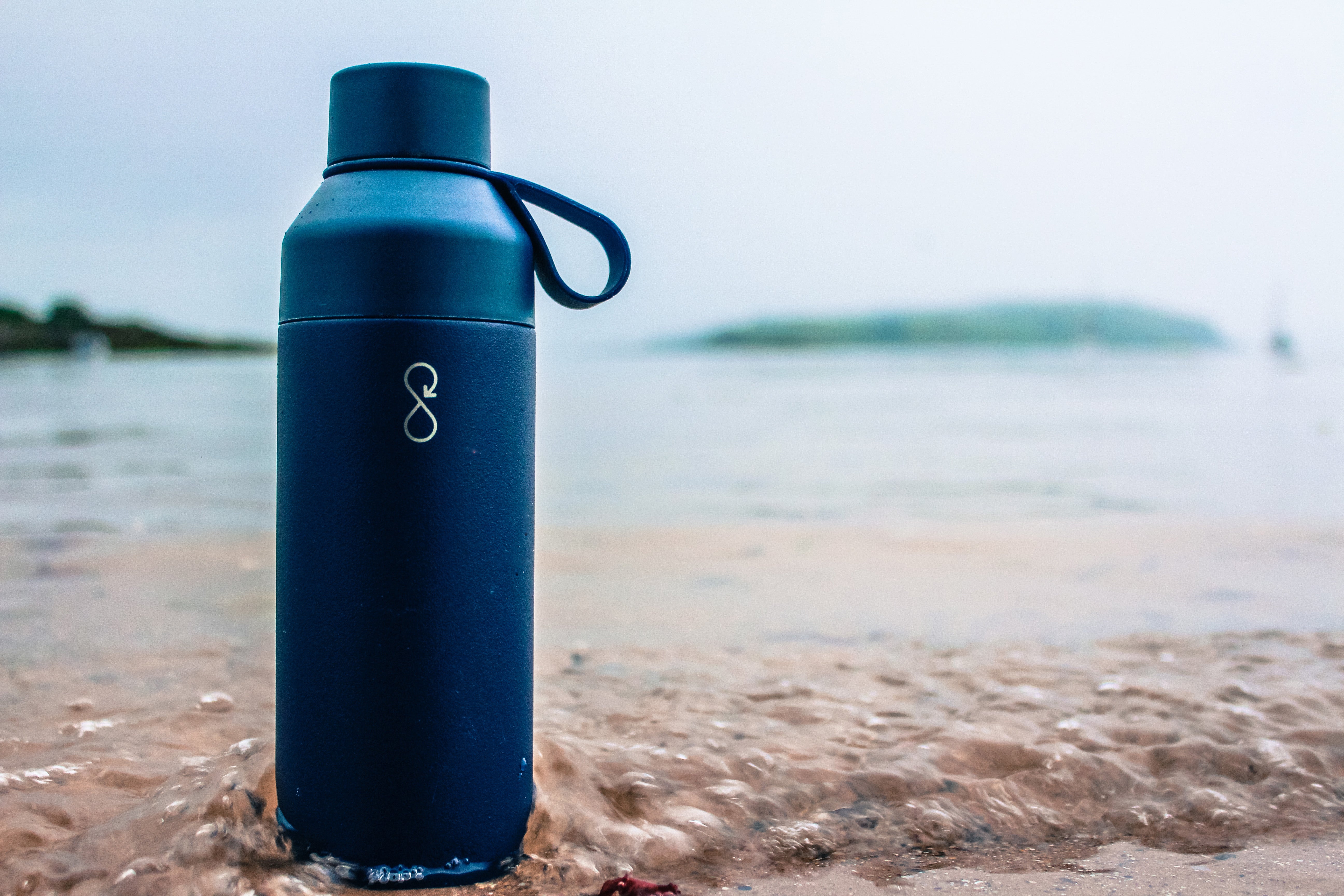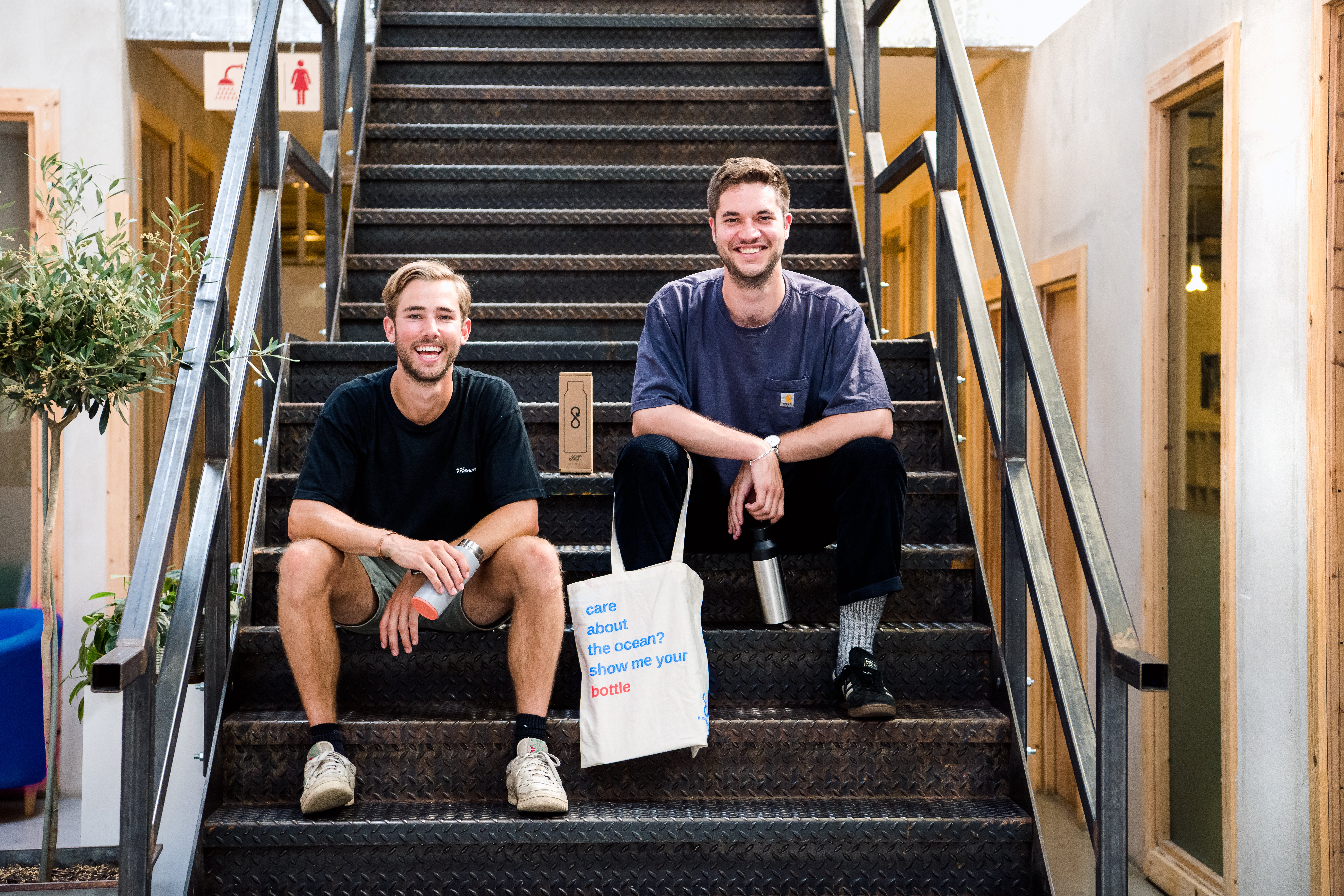Buy one Ocean Bottle, remove 1,000 single-use ones
Will Pearson and Nick Doman tell Andy Martin about their desire to help keep the oceans free of plastic and how that led to the Ocean Bottle


You really will want to carry our bottle around with you,” says Will Pearson, co-founder of Ocean Bottle. Call me a hardened sceptic if you will, but I thought I should put this statement to the test. I got one (forest green). Result: Will Pearson was not kidding. I really do carry my Ocean Bottle around with me and slip it into my satchel every day whether I’m going to the gym or just trooping around and refuelling on coffee.
One thing I should make clear: Ocean Bottle is no ordinary bottle (or flask). Will Pearson and his partner and co-founder Nick Doman guarantee that if you buy one of their bottles they will clear up and dispose of or recycle 1,000 of those single-use plastic bottles that have become such a blight on the world and especially the oceans. And if you are another of the hardened-sceptic type, then I should mention one other thing: there is a smart chip on the bottom of the bottle that enables you to hook up with their website and keep tabs on exactly how many bottles (of the undesirable kind) they are sorting out. Everything is traceable and trackable.
Both Will and Nick have a strong interest in keeping the oceans clean and green. Will was brought up in Tunbridge Wells and went sailing for the first time with his grandparents aged four, and he’s still at it now he lives in Norway. “Being on the ocean gives you this global citizen feeling,” he says. “Where I live you almost have to get in a boat just to go to the shops.”
Nick’s mother was Canadian, his father Australian, and he spent his summers on the Great Lakes or swimming in Australia. “We’ve been so lucky to experience these pristine environments,” he says.
Will and Nick met at the London Business School in 2017 when they sat next to one another at a lecture. They ended up sharing their ideas on problems that needed to be solved. Their attitude was: if not us then who? According to a survey they had carried out, 99 per cent of people would like to make a difference to environmental problems, but 88 per cent feel helpless. I know the feeling, I say. “What are you doing on your own?” says Will. “We want to bring you together with others. They will empower you.”
They needed to create something that was useful, and also a visual, tangible symbol of the larger project – and it had to be fun to use
The two of them zeroed in on the plastic crisis. Will had not long before sailed from Malta to the Maldives as a deckhand. “That was an inflexion point for me,” he says. He was supposed to be cleaning the decks but he wanted to clean up the whole of the Indian Ocean. “And the amount of rubbish in the oceans is due to quadruple by 2040.”
Meanwhile, Nick had recently returned from Colombia. “The rivers there are packed with plastic,” he says. “The seasonal rain washes it all into the ocean.” He was trying to work out how to stop it getting into the rivers in the first place.
Their shared fundamental belief was that everyone has the right to a decent environment and, by the same token, a shared responsibility to protect it. The trick, as Will says, is “connecting the dots of individuals around the world”. Ocean Bottle was their solution – a reusable bottle that also cancels out the non-reusable ones.

There are two main levers they are trying to pull. One is reduction in single-use plastic. “Why wrap a lettuce in material that lasts hundreds of years?” says Will. The other is “closing the collection gap”. At present there are 2 billion people in coastal communities who don’t have any waste collection facilities.
But first of all they had to get the bottle right. “The bottle for us is what the shoe was for Nike,” says Nick. They needed to create something that was useful, and also a visual, tangible symbol of the larger project – and it had to be fun to use. At present, 70 per cent of people have a reusable bottle but only one in six use it on a daily basis. “We wanted to make a bottle that people would want to have with them – and it would have a reason that would bring people together.” They rejected any off-the-shelf bottles and invested 3,000 hours in designing the product from the ground up for form and function, using recycled materials with plastic from the Philippines and stainless steel. It has a dual opening so you can use the top as a cup, and it’s easier to fill and clean.

Nick and Will are working within what is broadly the capitalist system, but they have plenty of doubts about the way capitalism typically works. “The people and the planet have been left behind,” says Nick. He cites, as a for instance, the rise of the single-use plastic bottle, which came out of the 1980s, originally promoted by Pepsi, and became rampant to the detriment of everyone. “Now there are 30 million tonnes of these bottles produced every single day,” says Nick. “Capitalism got us there.”
They calculate that the only way out is to use business, but in reverse, to fix the problems that have already been created in the 20th century. “It’s the new era of brands,” says Will, “that take on the issues and drive change.” Their business model would make no sense to an old-style ethics-free capitalist intent on maximising profits; 16.5 per cent of their revenue goes on plastic collection and they’re aiming to up this to 25 per cent by 2025. “Imagine a world in which Nike gave 25 per cent of its income to fixing the environment.”
They have collection points in coastal communities around the world. Locals exchange plastics for cash but also services like tuition. To date, they reckon they have collected 3 million kilos of plastic. Every 1,000 bottles is another 11.4 kg.
They launched in September in London at Gail’s Bakery (with branches around London including their newest one in King’s Cross) where with every refill they will guarantee to collect 20 bottles on your behalf. Will and Nick reckon this is better than the usual minimal discount. “The incentive is you’re doing something good for the environment. Get your cup of coffee and collect bottles in Brazil or Haiti or Indonesia. Think of the millions of cups of coffee that are sold every day – if you could tap into that the problem would be sorted.”




Join our commenting forum
Join thought-provoking conversations, follow other Independent readers and see their replies
Comments